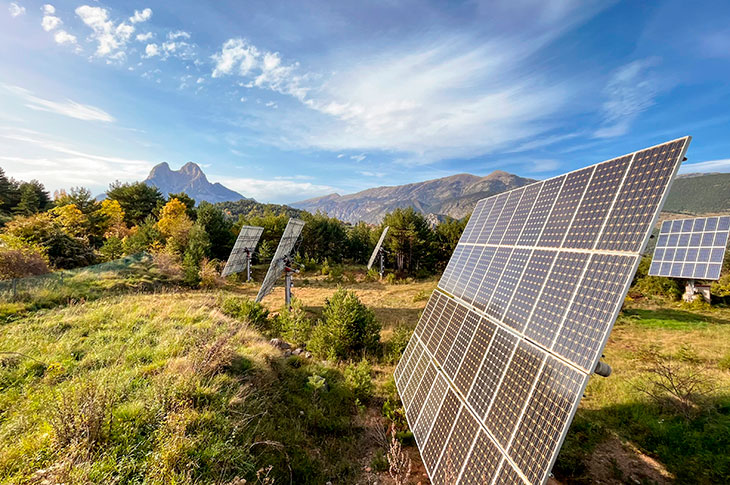What are Spanish destinations doing for energy and water efficiency?
Tourism is committed to sustainability with large investments to take care of natural resources
The tourism sector in Spain is moving towards sustainability with new investments in energy and water efficiency. Four autonomous communities have announced plans to optimise resource management in accommodation and tourism businesses, with the aim of reducing environmental impact and improving the competitiveness of the sector. The Canary Islands, one of the leading destinations for sun and beach tourism all year round, has launched a line of aid worth 11.2 million euros aimed at improving energy efficiency in accommodation and other activities linked to the tourism sector. The grants are financed with European Next Generation funds under the Recovery, Transformation and Resilience Plan. The programme promotes the reduction of final energy consumption and carbon dioxide emissions through energy savings, energy efficiency improvements and the use of renewable energies. Catalonia, whose offer combines urban (Barcelona), cultural, sun and beach (Costa Brava, Costa Dorada) and mountain (Pyrenees) tourism, is promoting the ecological transition and has launched an aid plan worth 45 million euros, financed by the tax on overnight stays and European Next Generation funds, to optimise water and energy consumption.

The subsidies aim to improve the sustainability of hotels, campsites, rural tourism accommodation, tourist flats and hostels, through the implementation of efficient technologies and systems for the use of water resources. Among the good practices they promote is the treatment and reuse of seawater, wastewater, water from swimming pools, showers and baths and actions that reduce the necessary water flow and lead to savings. The Region of Valencia, a consolidated sun and beach destination that also stands out for its gastronomy and sports tourism proposals, has decided to allocate 21 million euros to energy efficiency and circular economy projects, through the Recovery and Resilience Mechanism of the Next Generation funds. This aid has an impact on accommodation, restaurants, organisers of conventions and fairs, companies that manage theatres and amusement parks, to name but a few. The aim is to encourage the installation of photovoltaic systems, the replacement of old appliances with efficient models, the renovation of refrigeration equipment, the implementation of automation systems, and energy and water control. In terms of circular economy, actions such as waste reduction, recycling, reuse of materials and optimisation of resources are financed. The Principality of Asturias, renowned for rural and nature tourism, and for its strong cultural and gastronomic identity, has also launched a call for aid worth 11.2 million euros, as part of the Spanish Government’s Recovery, Transformation and Resilience Plan. To encourage the transition towards more sustainable models, it has promoted the use of materials for thermal insulation, the implementation of sensors to monitor consumption and optimise energy, food and water savings, as well as interventions in efficient air conditioning, ventilation, fuel substitution, high-efficiency boilers, thermal and electrical storage, to name but a few.

